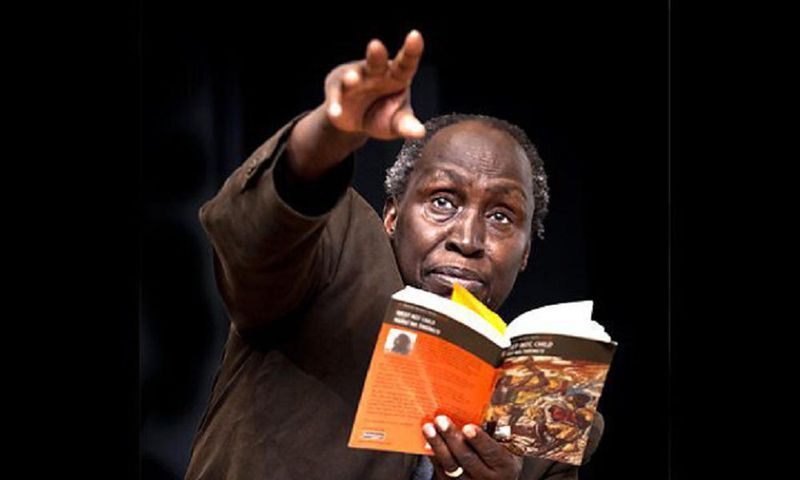
The Gift of Ngugi wa Thiongo to Africa
Ngugi wa Thiong’o’s passing at the age of 87 marks the end of an era but his legacy as a pioneering thinker, writer and activist continues to resonate deeply across Africa and the wider world. His life was a testament to the transformative power of language and culture as tools of resistance against colonial and neocolonial forces that have sought to suppress and erase indigenous identities. Ngugi’s unwavering commitment to writing in his native Gikuyu despite the personal risks and political repression embodied a bold stance against cultural imperialism, asserting that true liberation begins with reclaiming one’s language and stories.
His decision to abandon English, the language of colonial rule, was not merely a stylistic shift but a revolutionary act that challenged the very foundations of colonial power. It was a declaration that authentic voices could only emerge when rooted in indigenous languages and cultural contexts. Ngugi’s imprisonment in 1977 for writing in Gikuyu starkly illuminated the ongoing struggle to preserve and promote indigenous languages in the face of state censorship and cultural domination. His experience underscored a vital truth: that decolonization is not only political but also cultural and linguistic. Without the freedom to speak and write in one’s own tongue, true self-determination remains elusive.
Ngugi’s critique of neocolonialism is equally significant. He argued that the independence gained in many African nations did not equate to genuine liberation as new elites often continued to operate within colonial frameworks, adopting colonial technologies, discourses and systems of control. This insight anticipated what many scholars and activists now refer to as “neocolonialism,” where economic, political and cultural influences perpetuate colonial hierarchies long after formal independence. Ngugi’s analysis remains highly relevant today, as many postcolonial states grapple with ongoing imperialist influence, economic dependency, and cultural hegemony.
His intellectual partnership with Edward Said further highlighted the centrality of language and storytelling in resisting colonial domination. Both thinkers emphasized that colonialism is an ongoing violence; one that manifests not only through physical force but also through the silencing and marginalization of indigenous voices. Ngugi’s call for writers to “write dangerously” to challenge oppressive structures through fearless storytelling remains a powerful imperative for activists, scholars and artists committed to social justice and cultural revival.
In the broader context, Ngugi’s work challenges us to reconsider the very meaning of liberation. It is not enough to achieve political independence if the cultures, languages and histories of colonized peoples continue to be suppressed or marginalized. True decolonization, he argued, requires a conscious effort to decolonize minds and speech; an ongoing process of reclaiming and celebrating indigenous identities, histories and languages.
As we mourn his passing, it is also essential to reflect on the lessons Ngugi leaves behind. His life was a profound reminder that storytelling and language are powerful acts of resistance, tools to disrupt the narratives of domination and to forge new paths toward justice. His example urges us to resist complacency, to challenge the lingering effects of colonialism and to continue advocating for the voices that remain unheard or silenced.
In an era where cultural erasure and imperialist influence persist in subtle and overt ways, Ngugi’s legacy is a rallying cry. It calls on us to push for a world where indigenous languages and stories are valued and celebrated where the fight for cultural sovereignty is ongoing and where the power of words is harnessed to build a more equitable and self-determined future. His life’s work reminds us that liberation is an ongoing journey, one that begins with the courage to speak from the heart, to write dangerously and to never relinquish the right to define our own stories.
